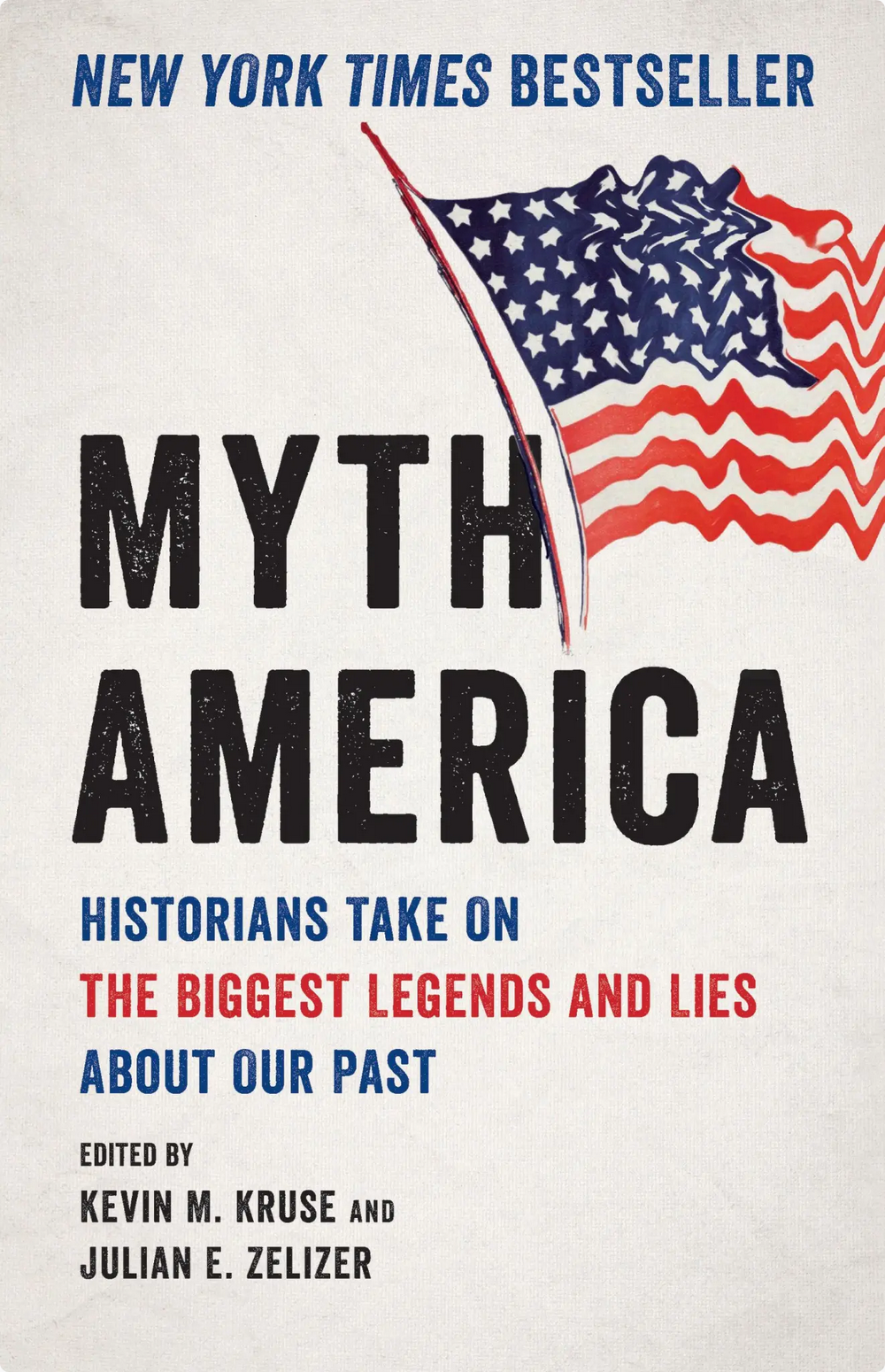The editors attribute the spread of “right-wing myths”—they do not distinguish analytically between myths and lies—to two causes: the “conservative media ecosystem” and the “devolution of the Republican Party’s commitment to truth.” So far, so good. Many prominent Republicans embraced and propagated former president Donald Trump’s lies about a stolen election. Even after it was revealed that Fox News commentators, including Tucker Carlson, knew that they were lying to their viewers, Speaker of the House Kevin McCarthy entrusted Carlson with exclusive access to video footage of the January 6 storming of the Capitol. Such brazen disregard for truth threatens the basic norms and principles of American democracy.
Or does it? To believe that Republican lies threaten our democracy, you also have to believe that our basic norms and principles are worth defending. But why sustain something as corrupt as American democracy? In her contribution to Myth America, Kathleen Belew, professor of history at Northwestern University, condemns those who proclaim that the events of January 6 do not reflect who we are as a country. She argues instead that this is “exactly who we are,” and a careful examination of the white nationalism and violence in our history will prove it. Belew simply inverts the story: White nationalists—including the Ku Klux Klan—embody the true America. Any story suggesting that we Americans are something better, or even that we have ideals that should inspire us to be better, is naive and false.
Like Belew, other contributors to Myth America write in absolutes. There is little that is tentative in this volume. The United States is an empire. American exceptionalism is a lie. The United States is xenophobic. There is no complexity. The world is divided into right and wrong, true and false, left and right. There is a lot of either/or but not much both/and. We find few good people doing bad things, much less flawed people achieving good things. There is almost no engagement with competing scholarly perspectives.
There are many missed opportunities. For example, in his essay on American exceptionalism, David Bell notes in passing that “the more progressive that Americans are in their politics, the more likely they are to see America as exceptional, if at all, in large part because of the harm it has done: the treatment of indigenous peoples, slavery, US foreign policy in the twentieth century, and contemporary inequality and racism.” Why leave this as an aside? Why not devote some space in the volume—especially given our public controversies over how we should teach American history—to the dangers posed by exceptionalist narratives from the left?

